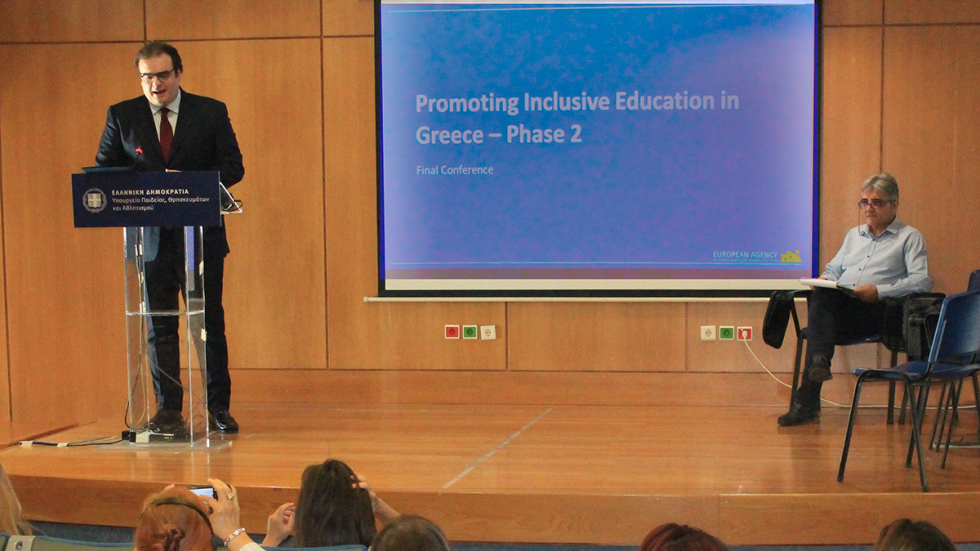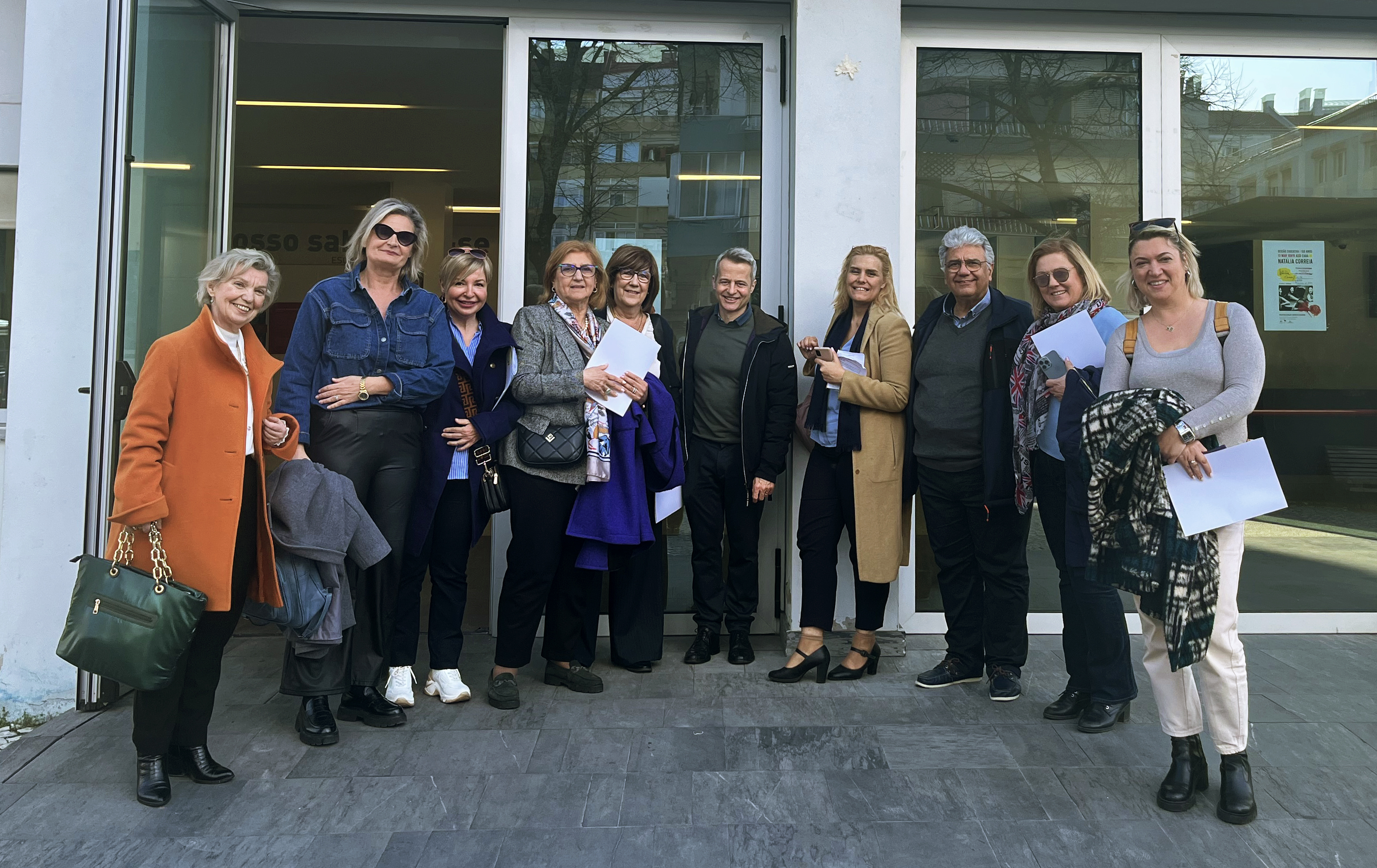The final conference of the project Implementation of the European Child Guarantee – Promoting Inclusive Education in Greece, Phase 2 took place on 23 September in Athens. Co-organised by the Greek Ministry of Education, Religious Affairs and Sports, the European Agency for Special Needs and Inclusive Education (the Agency), and the Directorate-General for Structural Reform Support of the European Commission (DG REFORM), the event marked the end of the European Union-funded project via the Technical Support Instrument (TSI). The project aimed to support the Ministry in establishing a sustainable and inclusive education policy framework.
Kyriakos Pierrakakis, Minister of Education, Religious Affairs and Sports, opened the conference. The Minister emphasised the Ministry’s commitment to fostering reforms that promote inclusive education, and said that ‘The results are extremely encouraging, contributing to the strengthening of inclusive education and improving daily inclusive practices in our schools’.
Around 200 participants attended the hybrid conference, including representatives from the Ministry team as well as a diverse group of educational stakeholders from Greece, DG REFORM, the Agency and UNICEF.
Nathalie Berger, Director for Support to Member States’ Reforms in the European Commission, addressed the participants via video, praising the Agency’s effective collaboration with local stakeholders and practitioners. She stressed the need to move from a medical model towards a holistic approach that supports the diverse needs of all learners, as set out in the European Child Guarantee, stating that ‘every child has the right to quality education’ and that ‘inclusiveness is about ensuring everyone gets the support they need to succeed in the core curriculum’.
Agency Director Cor J. W. Meijer also provided a video introduction, reflecting on Greece’s long-standing partnership with the Agency and highlighting the mutual knowledge gained through collaboration with other member countries.
Ministry representatives Giannis Bousdounis and Athina Christopoulou outlined the project’s contributions to promoting inclusive education in three key areas: inclusive transitions, inclusive assessment and inclusive school guidelines. Mr Bousdounis underscored the importance of interdisciplinary co-operation among educators, specialists and stakeholders, noting that ‘the Ministry will benefit from the tools and overall experience of the programme to achieve change in practices, culture, collaboration and the professional development of all educators’.
Agency representatives Mary Kyriazopoulou, Peter Dráľ, Josef Miškolci and research advisor Alan Dyson shared key project results, including updated educational tools, a roadmap for implementation and a set of recommendations to promote inclusive practices in schools. They highlighted the importance of early and on-going dialogue with local stakeholders, as evidenced by the promising examples already emerging within the Greek education system.
Panellists also discussed how the project’s tools could enhance inclusive practices in classrooms nationwide. They shared ways of ensuring the sustainability of these outcomes beyond the project’s duration. Regional education advisor of Achaia, Sofia Asimakopoulou, stressed: ‘The lessons we draw guide us in strengthening our schools to become more inclusive. This involves changing school cultures, policies and practices through a long-term process of innovation, where every step is significant’. She also emphasised the critical role of collaboration between parents and stakeholders in ensuring successful outcomes.
The conference concluded with a shared commitment to implementing the discussed strategies and maintaining momentum towards sustainable practices across Greece. DG REFORM Project Officer Dorina Giouroukou highlighted that the tools tested during the project would serve as a strong foundation for inclusive education nationwide, supporting the progressive shift in mindsets towards more inclusive practices.
Further details about the Agency’s work through the TSI can be found on the Agency’s TSI web area.


